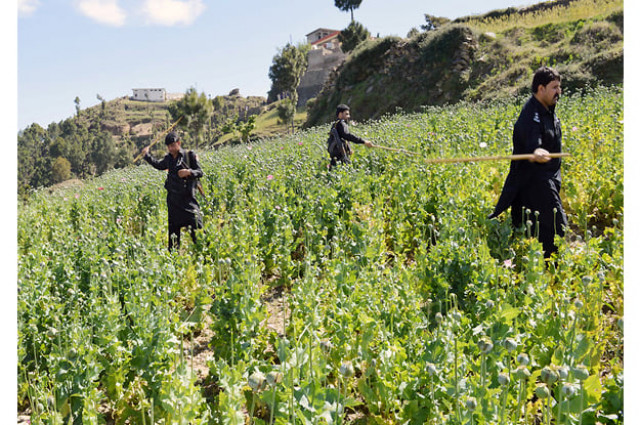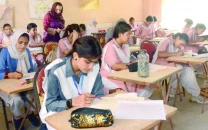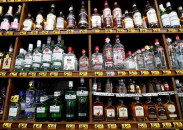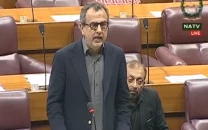Balochistan cracks down on drug cultivation
Govt to arrest growers, confiscate land, cancel CNICs

The Balochistan government has ordered a strict crackdown on the cultivation and smuggling of drugs, particularly in response to reports of poppy crops being grown in Killa Abdullah and Pishin districts.
The decision was reinforced in a high-level meeting chaired by Quetta Division Commissioner Hamza Shafaqat on Friday.
The meeting outlined severe actions against landowners involved in cultivating drugs. Penalties include arrest, land confiscation, blockage of national identity cards, bank accounts, and local certificates. Officials emphasised that any violation would result in strict legal consequences.
"Drug cultivation and smuggling threaten the very fabric of our society. We will leave no stone unturned in eradicating this menace," said Commissioner Hamza Shafaqat.
"Operations in Pishin and Killa Abdullah have already led to the seizure and destruction of thousands of tons of drugs, with drug factories demolished."
The meeting, attended by senior officials, including Additional Commissioner Agha Samiullah, secretary excise, ANF sector commander, and all deputy commissioners underscored joint efforts against drug trafficking.
The crackdown will be executed under the supervision of the provincial taskforce, led by the Home additional chief secretary, to ensure rigorous implementation across the whole area.
The decision to block the national identity cards, passports, and bank accounts of individuals involved in drug cultivation in Chaman, Killa Abdullah, and Zhob districts of Balochistan has been widely welcomed by residents of the area.
Locals have praised the administration for taking this bold step, which they say addresses their longstanding demand to curb drug cultivation.
The illicit practice has been a major contributor to the rise in drug addiction in Quetta and other parts of Balochistan, prompting calls for stricter measures to combat the issue.
Residents hope this initiative will deter drug cultivation and help tackle the growing addiction problem in the province.
Drug abuse in Balochistan has reached alarming levels, exacerbated by the province's proximity to Afghanistan, one of the largest producers of opiates. According to recent reports, over 7% of the adult population in Balochistan is engaged in drug use, compared to the national average of 5.8% in Pakistan. This includes substances like heroin, opium, and synthetic drugs. An estimated 8,000 new drug users are added annually in the province, with many being youth and students.
The lack of adequate rehabilitation centres and awareness campaigns further aggravates the situation. Currently, there are fewer than 10 active treatment facilities in Balochistan, insufficient to address the needs of over 250,000 drug users.



















COMMENTS
Comments are moderated and generally will be posted if they are on-topic and not abusive.
For more information, please see our Comments FAQ